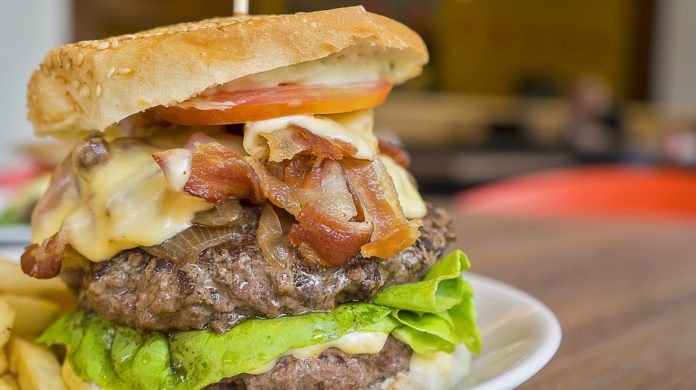A high-calorie diet during stress results in more weight gain than the same diet in a stress-free environment
Under stress, watching what you eat may be even more important.
Researchers have discovered in animal studies that a high-calorie diet when combined with stress resulted in more weight gain than the same diet in a stress-free environment.
The findings were published in the journal Cell Metabolism.
“This study indicates that we have to be much more conscious about what we’re eating when we’re stressed, to avoid a faster development of obesity,” said Professor Herzog, Head of the Eating Disorders laboratory at the Garvan Institute of Medical Research.
While insulin imbalance is at the centre of a number of diseases, the study indicates that insulin has more wide-spread effects in the brain than previously thought
Some individuals crucially increase the intake of ‘comfort food’ (calorie-dense food high in sugar and fat) during periods of stress.
While food intake is mainly controlled by a part of the brain called the hypothalamus, another part of the brain – the amygdala – processes emotional responses, including anxiety.
“Our study showed that when stressed over an extended period and high calorie food was available, mice became obese more quickly than those that consumed the same high fat food in a stress-free environment,” explained Dr Kenny Chi Kin Ip, lead author of the study.
At the centre of this weight gain, the scientists discovered, was a molecule called NPY, which the brain produces naturally in response to stress to stimulate eating in humans as well as mice.
“We discovered that when we switched off the production of NPY in the amygdala weight gain was reduced. Without NPY, the weight gain on a high-fat diet with stress was the same as weight gain in the stress-free environment,” said Dr Ip. “This shows a clear link between stress, obesity and NPY.”
To understand what might control the NPY boost under stress, the scientists analysed the nerve cells that produced NPY in the amygdala and found they had receptors, or ‘docking stations’, for insulin – one of the hormones which control our food intake.
Under normal conditions, the body produces insulin just after a meal, which helps cells absorb glucose from the blood and sends a ‘stop eating’ signal to the hypothalamus feeding centre of the brain.
In the study, the scientists discovered that chronic stress alone raised the blood insulin levels only slightly, but in combination with a high-calorie diet, the insulin levels were 10 times higher than mice that were stress-free and received a normal diet.
“Our findings revealed a vicious cycle, where chronic, high insulin levels driven by stress and a high-calorie diet promoted more and more eating,” explains Professor Herzog. “This really reinforced the idea that while it’s bad to eat junk food, eating high-calorie foods under stress is a double whammy that drives obesity.”
While insulin imbalance is at the centre of a number of diseases, the study indicates that insulin has more wide-spread effects in the brain than previously thought.


